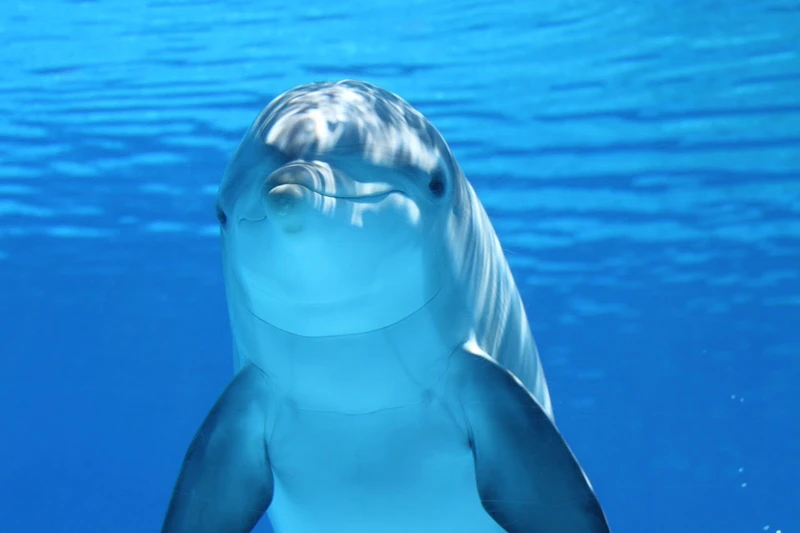Scientists in a new study investigated where the likelihood of intelligent life based on technology is greater – in the oceans or on land. According to the findings, such beings are more likely to develop in oceanic environments. However, being on land may have factors that facilitate the development of intelligent life.
Where to search for intelligent life in the Universe – on land or in water?
Nature and the qualities of intelligence are often discussed and raise many questions. For example, are humans the only intelligent and even the smartest species on Earth? Of course, it is nice to think so. However, animals such as dolphins Crows and elephants may have high intelligence (from a human perspective), but they still do not create complex societies (as far as scientists know).
In astrobiology, this question is important, especially regarding stars. The question of where the best chances of finding other intelligent life in the Universe lie – on land or in water – interests many astrobiologists. A new study adds an interesting twist to this discussion.

According to Associate Professor of Aerospace Physics and Space Sciences Manasvi Lingam, technological intelligence is more likely to develop in the oceans than on land. But how does this align with humanity’s own reality as a terrestrial species?
Researchers rely on Bayesian analysis when considering the probability of intelligent species emerging in terrestrial or oceanic environments. They argue that if all factors remained equal, oceanic environments would be more conducive to the emergence of technological species due to their vast diversity. After all, oceans cover about 71% of the Earth’s surface.
Developing technology in water is more complex than on land.
Researchers have focused on the development of tools as a measure of intelligence. They concluded that one reason intelligent life is not as prevalent in the oceans as one might expect is that developing tools and complex technologies underwater may be more challenging than on land.
As Manasvi Lingam explains, the emergence of intelligent life in the ocean may require a very long time due to various biophysical reasons, such as the sensory capabilities of land versus water. He adds that while the aquatic environment is likely where life originated, it may actually hinder the development of technologies. Another possibility is that due to a number of factors (such as energy sources), the oceans may not be as suitable for the existence of intelligent life as we think.

To conduct the research, the team used data on the existence of life on Earth to explain various forms of intelligent life – from primates to octopuses and cetaceans (such as dolphins). Researchers have also applied mathematical and physical models (specifically, Bayesian probability theory) to determine the likelihood of intelligence emerging in water rather than on land. Additional data from telescopic observations, field studies of animal behavior, and the role of oxygen in the evolution of complex life have also been examined.
Technological intelligence as a measure of comparison among intelligent beings.
Journalists of the publication Interestingengineering We spoke with Manasvi Lingam to learn more about the research and conclusions drawn by the team of scientists. According to Mr. Lingam, intelligence is quite a vague concept, so scientists focus on predicted species that belong to a similar category as humans. This is why species considered intelligent are those that possess intensive and extensive technologies. As a result, researchers use the phrase “technological intelligence.”
Mr. Lingam also notes that he does not consider humans to be the “smartest,” as this aspect is difficult to quantify and establish. However, in his opinion, it seems that humans are more skilled than any other species in creating technologies. Oceanic species demonstrate many signs of high intelligence, such as theory of mind, complex communication, and the use of some basic tools.
Just an assumption, not a statement.
According to the analysis by Mr. Lingam’s team, there is a potential advantage for the development of technological intelligence in oceans. However, the question arises: what then explains the emergence of humans on land?
Dr. Lingam states that this advantage arises solely from the fact that there are far more aquatic worlds than those with land. In other words, if all other factors remain equal (which is key), technological intelligence is more likely to develop in oceans.
However, as Mr. Lingam points out, we cannot assume that “all other factors are considered equal.” Therefore, his team is contemplating ways in which land could be better than oceans as a much more favorable environment for the emergence of technological intelligence.

According to the researcher, there are more habitats in the ocean, which may seem to favor them. However, when looking at the properties of oceans and land, it appears that the former have certain physical characteristics that are more conducive to technological intelligence. Life on land requires less energy for movement, has visual advantages, and the ability to use fire, among other things, compared to life in the ocean.
Recent studies indicate that (sub)surface ocean worlds (i.e., without large land masses or continents) are common in Milky Way They may also have conditions suitable for life. This increases the likelihood that life and technological intelligence could arise in such aquatic environments.
